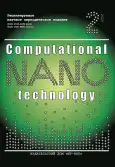Применение инструментов искусственного интеллекта в анализе проблемы повышения мотивации возрастных групп обучающихся в системе дополнительного профессионального образования
- Авторы: Смоленцева Т.Е.1, Приходько Н.А.1
-
Учреждения:
- МИРЭА – Российский технологический университет
- Выпуск: Том 12, № 2 (2025)
- Страницы: 119-128
- Раздел: ИНФОРМАТИКА И ИНФОРМАЦИОННЫЕ ПРОЦЕССЫ
- URL: https://journal-vniispk.ru/2313-223X/article/view/309724
- DOI: https://doi.org/10.33693/2313-223X-2025-12-2-119-128
- EDN: https://elibrary.ru/RAYKQA
- ID: 309724
Цитировать
Аннотация
В статье проводится исследование особенностей мотивации обучающихся различных возрастных групп в системе дополнительного профессионального образования (ДПО), с акцентом на выявление индивидуальных барьеров и потребностей каждой категории. Авторы отмечают, что традиционные методы организации образовательного процесса часто не учитывают специфические особенности подростков, молодежи, взрослых и пожилых, что приводит к снижению мотивации и неэффективности обучения. Цель статьи – продемонстрировать, как применение современных инструментов искусственного интеллекта (ИИ), в частности чат-бота, способного проводить анализ тональности, выявлять эмоциональное состояние пользователя и предоставлять персональные рекомендации, может стать эффективным средством повышения мотивации и вовлеченности обучающихся всех возрастных групп. Исследование опирается на комплексный методический подход, включающий как количественные данные, полученные посредством опросников, так и качественные результаты интервью и практических тестовых запусков чат-бота. Такой междисциплинарный подход позволяет выстроить взаимосвязь между эмоциональными факторами, особенностями восприятия информации и учебными результатами. Результаты исследования подтверждают, что внедрение адаптивных ИИ-решений способствует созданию более гибкой и индивидуально настроенной образовательной среды, где эмоциональная поддержка, интерактивные задания и регулирование темпа обучения учитывают уникальные особенности каждой возрастной группы. Авторы приходят к выводу, что дальнейшее развитие таких технологий имеет потенциал существенно трансформировать систему дополнительного профессионального образования, делая ее более эффективной, персонализированной и открытой для инноваций.
Полный текст
Открыть статью на сайте журналаОб авторах
Татьяна Евгеньевна Смоленцева
МИРЭА – Российский технологический университет
Автор, ответственный за переписку.
Email: smoltan@bk.ru
ORCID iD: 0000-0003-4810-8734
SPIN-код: 2383-6811
доктор технических наук; заведующая, кафедра прикладной математики
Россия, г. МоскваНикита Алексеевич Приходько
МИРЭА – Российский технологический университет
Email: docfr10@yandex.ru
ORCID iD: 0009-0000-1166-7896
SPIN-код: 3103-7511
кафедра практической и прикладной информатики
Россия, г. МоскваСписок литературы
- Шобонов Н.А., Булаева М.Н., Зиновьева С.А. Искусственный интеллект в образовании // Проблемы современного педагогического образования. 2023. № 79-4. С. 288–290. EDN: IPRJAG.
- Лахманова И.Е., Родионов В.С. Вопросы внедрения искусственного интеллекта в систему высшего образования // Государство и бизнес. Направления социально-экономического развития: матер. XV Междунар. науч.-практ. конф. (С.-Петербург, 26–27 апреля 2023 г.). В 2 т. Санкт-Петербург: РАНХиС, 2023. С. 171–185. EDN: TZWNGM.
- Полипович С.А., Шрайнер Б.А., Чикова О.А. Формирование мотивации при обучении школьников основам искусственного интеллекта // Педагогическая информатика. 2021. № 3. С. 25–33. EDN: HPRYQX.
- Волошина С.Э., Шарандин С.Е. Применение искусственного интеллекта в профессиональном образовании // Педагогический вестник. 2022. № 24. С. 22–24. EDN: QHTRXN.
- Тарасюк Н.А., Чубов С.А. Применение возможностей искусственного интеллекта в современном профессиональном образовании на основе реализации контекстного подхода // Путь в науку. Современная национальная экономика: молодые ученые новый взгляд: матер. II Междунар. науч.-практ. конф. (Орёл, 21–22 апреля 2022 г.). Орел: Орловский гос. ун-т им. И.С. Тургенева, 2022. С. 437–447. EDN: IUUMWM.
- Сябитова К.С., Филатова О.Н. Искусственный интеллект в системе профессионального образования // Профессиональное самоопределение молодежи инновационного региона: проблемы и перспективы: сб. ст. по матер. Всерос. (национальной) науч.-практ. конф. (Красноярск, 14–25 ноября 2022 г.). Ч. 2. Красноярск; Челябинск; Н. Новгород; Москва: Красноярский гос. аграрный ун-т, 2023. С. 132–134. EDN: MEISQW.
- Tan M.J.T., Maravilla N.M.A.T. Shaping integrity: Why generative artificial intelligence does not have to undermine education // Frontiers in Artificial Intelligence. 2024. Vol. 7. doi: 10.3389/frai.2024.1471224. EDN: EHYLMK.
- Arslanova K.Z., Amangeldiyev A.Zh., Aitpayev A.T. The impact of AI on student motivation and cognitive skills in higher education // Science Bulletin. 2024. Vol. 2. No. 11 (80). Pp. 1034–1052. EDN: WNJWHP.
- Shrivastava R. Role of artificial intelligence in future of education // International Journal of Professional Business Review. 2022. Vol. 8. No. 1. P. e0840. doi: 10.26668/businessreview/2023.v8i1.840. EDN: WHFBCF.
- Фомина Е.Е., Кошкина Г.В., Иванова У.А. Искусственный интеллект в образовании: риски и проблемы // Цифровые, компьютерные и информационные технологии в науке и образовании: сб. ст. II Межрег. науч.-практ. конф. с междунар. участием (Брянск, 14–15 ноября 2024 г.). Брянск: Брянский гос. ун-т им. акад. И.Г. Петровского, 2025. С. 89–92. EDN: THJAKY.
- Сафонцева Н.Ю., Кривенко-Бахмутская Ю.Н. Искусственный интеллект в образовании: технологические смыслы и ценностные риски // Ценности и смыслы. 2025. № 1 (95). С. 19–37. doi: 10.24412/2071-6427-2025-1-19-37. EDN: ZRBVGH.
- Андреева Е.А., Донцов А.В. Искусственный интеллект в современном образовании // Экономические и гуманитарные исследования регионов. 2025. № 1. С. 8–11. EDN: TPHSDM.
- Симонова Н.В. Искусственный интеллект в образовании: перспективы и возможности применения // Информационно-коммуникационные технологии в педагогическом образовании. 2024. № 6 (93). С. 73–79. EDN: BWWFYQ.
- Jia F., Sun D., Looi C.K. Artificial intelligence in science education (2013–2023): Research trends in ten years // Journal of Science Education and Technology. 2024. Vol. 33. No. 1. Pp. 94–117. doi: 10.1007/s10956-023-10077-6. EDN: COJWWT.
- Barakina E.Yu., Popova A.V., Gorokhova S.S., Voskovskaya A.S. Digital technologies and artificial intelligence technologies in education // European Journal of Contemporary Education. 2021. Vol. 10. No. 2. Pp. 285–296. doi: 10.13187/ejced.2021.2.285. EDN: HPQKEU.
- Swindell A., Greeley L., Farag A., Verdone B. Against artificial education: Towards an ethical framework for generative Artificial Intelligence (AI) use in education // Online Learning Journal. 2024. Vol. 28. No. 2. doi: 10.24059/olj.v28i2.4438. EDN: KNCUPG.
Дополнительные файлы









